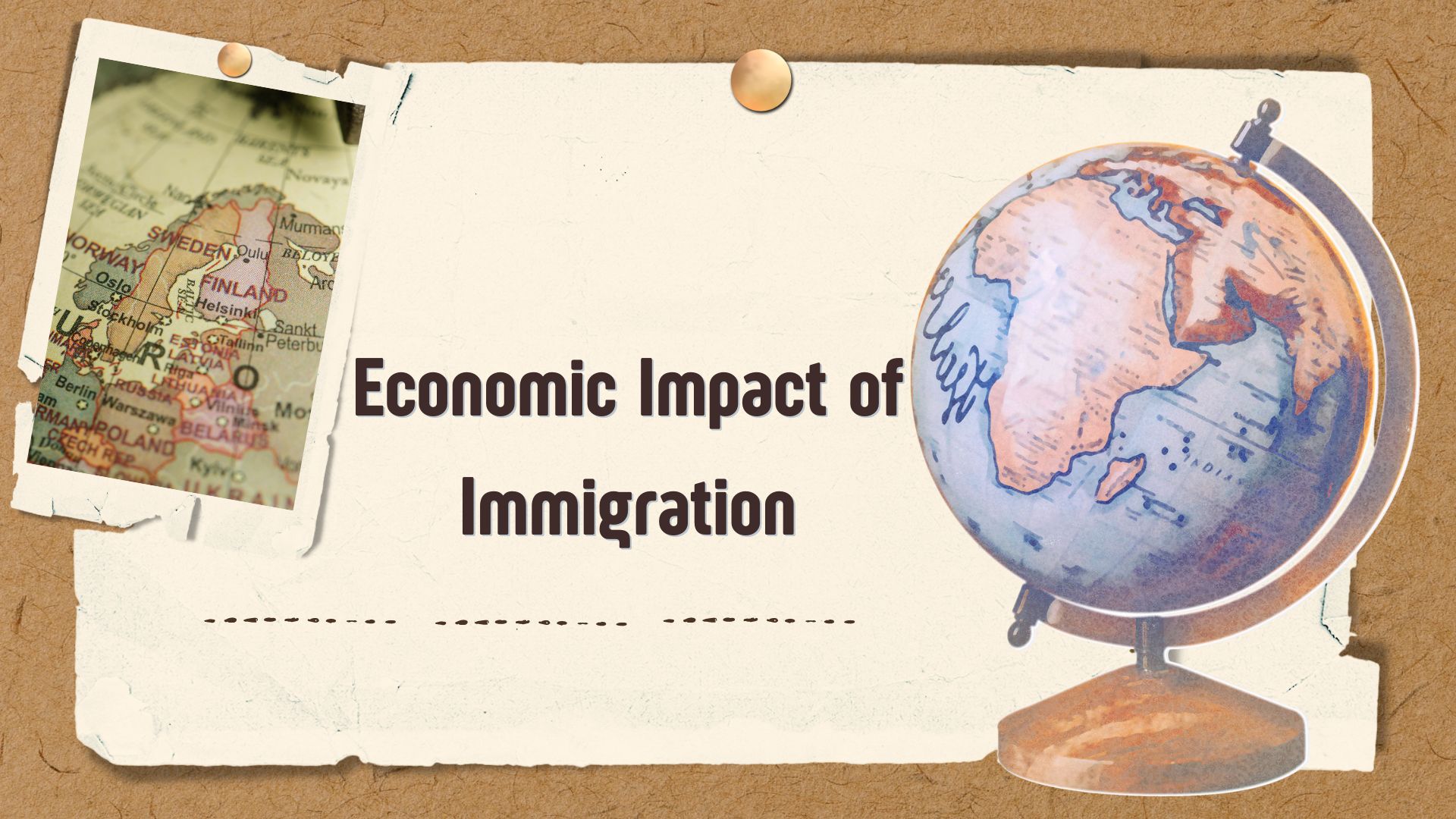Building Bridges: The Economic Impact of Immigration

According to a report by National Academies, the population of immigrants in the US has skyrocketed to historically high numbers since the early 2000s. It increased from 4.7% in 1970 to a staggering 13.3% in 2014, and there has been constant growth ever since. By 2017, at least one member of a standard family in the US is a foreign-born individual.
America welcomed people from all around the world. However, immigration still remains one of the most pressing policy concerns for the country. There are pros, there are cons, and there are misconceptions. We will help you understand them in detail.
If you need a short answer, there could be polarizing opinions about immigration, but the data largely suggests a positive economic outcome. This article explores the economic impact of immigration. Let us begin!
What is Immigration?
This section will explain the meaning of immigration in case you are confused between emigration and immigration.
These are commonly used interchangeably, but they are two completely different terms.
When you are an immigrant, you leave your home country to live in a foreign country. If you move to another country from your country of origin, the process is called emigration. For example, a person moving to the US from Mexico in search of work is an immigrant in the US. It means he immigrated to the US from Mexico.
To further clarify, migration is a broader umbrella term that refers to the relocation of an individual and their families across the border or within the same country. Therefore, immigration and emigration both come under the broad category of the term “Migration.” Migration could be temporary or permanent.
Economic Impact of Immigration
We will study the economic consequences caused by immigration in this section of the article.
Competition in the Labor Market
Immigrants are hardworking and know the value of getting the privilege to live in a developed economy. It helps them earn a better livelihood and upgrade their standard of living with time. The economy, too, benefits a great deal from them. Immigrants help the labor market function smoothly, breaking barriers that can stunt the growth of a developed country.
With the dwindling population of the economically active population due to low birth rates, the population of less productive, aging natives is increasing. And immigrants fill this gap by satisfying the high demand for labor.
The influx of immigrants in the initial phases may seem like a complex administrative and economic overhead. The increased supply of labor in the form of skilled work by immigrants may lead to a fall in wages during the nascent stages.
However, these will rise again as more investments and capital are infused into the developed economy by the businesses themselves to maintain a high capital-labor ratio. The increase in average pay helps to keep immigrant labor extremely productive.
For example, there is a misconception that immigrants are taking the jobs of people born and raised in America. However, one must understand that immigrants not only satisfy the demand for labor but also boost the demand for goods and services by spending their income in a foreign nation as consumers. This, in turn, creates more jobs and helps revive the country economically.
Children of immigrant parents greatly help the economy.
Immigrant students and children of immigrant parents are brilliantly skilled people. They are educated, hardworking, and responsible residents of the country. They have made significant contributions to the economy, especially in the fields of science, engineering, medicine, and technology.
In 2011, research stated that Immigrants hold senior leadership roles, and 50% of venture capital firms had immigrant founders. Their children have carried the entrepreneurial legacy and provided employment opportunities to more than 10 million people around the world.
Immigrants elevate the economy with their well-paid jobs.
As opposed to the thinking of some conservative natives that immigrants create chaos and steal their jobs, they legally reside and pay taxes, contributing substantially to the country's economic well-being.
All the important public services, including education, healthcare, transportation, and law enforcement, are funded by their massive contributions via tax revenues. Also, half of the legal immigration budget is spent on supporting social security. Imagine the loss of funds and the extent of financial trouble in the economy if the authorities just let go of the immigrant population in the country!
Mass deportation of immigrants will not only be unethical but also will hurt the economy in many ways. It will affect the GDP of the country, create a huge tax burden on the natives, and even put the housing market in jeopardy. Approximately 40,000 front-line healthcare workers during the COVID-19 pandemic were immigrants. So, deporting them would destroy families in both countries – the families of the immigrants and the families of the native populace.
Also, since most immigrants are livelihood earners, they belong to a productive working age. Therefore, they do not require a huge chunk of the tax budget when it comes to health insurance or social security. However, taxes paid by immigrants are used for the country's military spending, which is a direct contribution to national security.
As a resident immigrant, you can contribute greatly to the economic upliftment of the country. So, getting a residency is the first step. Citizenship, which is the next logical step, is often tough to achieve. However, you can check out this article – https://globalresidenceindex.com/residency-vs-citizenship/ to understand what would be best for you.
The downsides of immigration
Low-skilled immigrants may face the problem of falling wages. However, this impact is smaller than the positive impact they create on the economy.
Another issue is that of structural unemployment. It supports the myth that immigrants take away the jobs of the native population. Most immigrants, especially those who are engaged in unskilled labor, are ready to accept far lower wages. They would also take up jobs that natives would not readily do, leaving them jobless. This gives off the impression that immigrants are stealing jobs, triggering hate, bigotry, and racism.
Immigration also brings in the possibility of organized crime, like drug smuggling and human trafficking, as traveling across the border gets much easier.
In places with acute shortages of good housing facilities, such as New York and London, immigration can further drive up real estate pricing and house rent. This can put some strain on public amenities, make accommodations expensive, and affect the living standards of both natives and immigrants.
Conclusion
Do developed economies need immigration? Yes, they do, as it helps gather skilled labor and build stronger future generations required for the economy to prosper in the long run. For more information, you can find us on the Global Residence Index.

Robyn Greenspan, an independent researcher and speaker, is interested in innovation, market trends and information technology. She was a participant in the AI Summit and also took part in the IEEE International Conference on Edge Computing, International SOA Symposium series and the International Cloud Symposium series. She graduated from Temple University. She was previously the communications and research manager for the AMS, an internationally recognized professional association that advances knowledge in the IT and business management areas.



